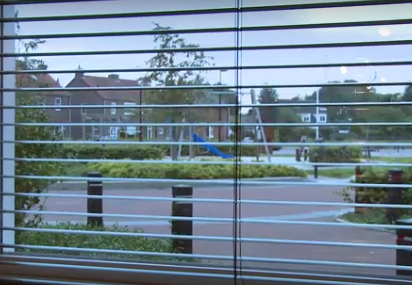Syrian war criminals living in Netherlands as refugees – NRC


Dozens of suspected Syrian war criminals may be living incognito in the Netherlands after slipping out of the country at the height of the civil war, according to an investigation by NRC.
The newspaper reported that three associates of President Bashar Al-Assad’s regime who had been granted asylum by the immigration service (IND) had been implicated by other refugees in war crimes.
Under Article 1F of the Geneva Convention, a country can refuse asylum if there are ‘serious reasons for considering’ that the person making the request has committed war crimes or crimes against humanity.
However, at the peak of the civil war in 2015 so many refugees were fleeing into Europe that members of the ‘shabiha’ – loyalists to the Assad regime who arrested, tortured, raped and murdered its political opponents on an industrial scale – were able to cross the border undetected.
‘They are the casual workers of the war machine,’ Ugur Üngör, a professor of genocide studies attached to the Dutch Institute for War Documentation (NIOD), told NRC. ‘They can be engaged as a kind of civil guard, an armed civilian unit for repressing dissidents.’
Üngör pointed out another reason why the war criminals were able to slip in under the radar. ‘All the debate [at the time] was about jihadists in the stream of refugees. I sat watching with suppressed rage, because the part played by the regime in the destruction of Syrian society is so much greater.’
Syrians in Drenthe
NRC spoke to two Syrians living in the same unnamed village in Drenthe – Raid Sadek, who fled with his family in 2015 after claiming to have been arrested and tortured by Assad’s security services, and a one-armed man named as Bashar.
Shortly after arriving in the Netherlands Sadek was told by Syrian community groups that Bashar had worked for the Syrian military intelligence unit 215, which specialised in torturing prisoners on an industrial scale and was shown photographs of Bashar in combat fatigues.
Bashar told the newspaper he had worked as a chauffeur for a rich, well-connected car dealer and was given a uniform of unit 215 so he could pass through government checkpoints.
But Sadek’s story was corroborated by other witnesses to the conflict whose testimonies were collected by the Paris-based human rights lawyer Mazen Darwish. They said Bashar had worked closely with a lieutenant-colonel in the security services and lost his arm in a road accident in one of the lieutenant-colonel’s vehicles.
NRC also said a Palestinian man from Homs, named as Yassin, now living in a Noord-Holland town, recruited child soldiers for the pro-Assad militia Liwa al-Quds (the ‘Jerusalem Brigade’), and a former checkpoint guard in Damascus, named as Amer, was living in a village in Gelderland.
Cases reviewed
The IND has a special 1F unit, set up in 1997 after news magazine Vrij Nederland revealed that many former members of the Taliban regime in Afghanistan were living in the Netherlands as refugees, to the horror of legitimate Afghan refugees who recognised them in their neighbourhoods.
Last year the 1F unit reviewed the files of all 12,750 Syrian men aged between 17 and 35 who arrived in the Netherlands between 17 and 35. Deputy justice minister Ankie Broekers-Knol said in June that the exercise had identified only one case in which there was enough evidence to rescind a Syrian national’s residence permit.
The Netherlands is also the first country to bring a case against the Syrian government for ‘gross human rights violations’ under the 2004 UN Convention against Torture, whose signatories include Syria.
Foreign affairs minister Stef Blok said in September: ‘If we don’t take the first step, nothing will ever happen. We have an obligation to the victims and must show the world that we will not stand by and let this happen.’
Thank you for donating to DutchNews.nl.
We could not provide the Dutch News service, and keep it free of charge, without the generous support of our readers. Your donations allow us to report on issues you tell us matter, and provide you with a summary of the most important Dutch news each day.
Make a donation